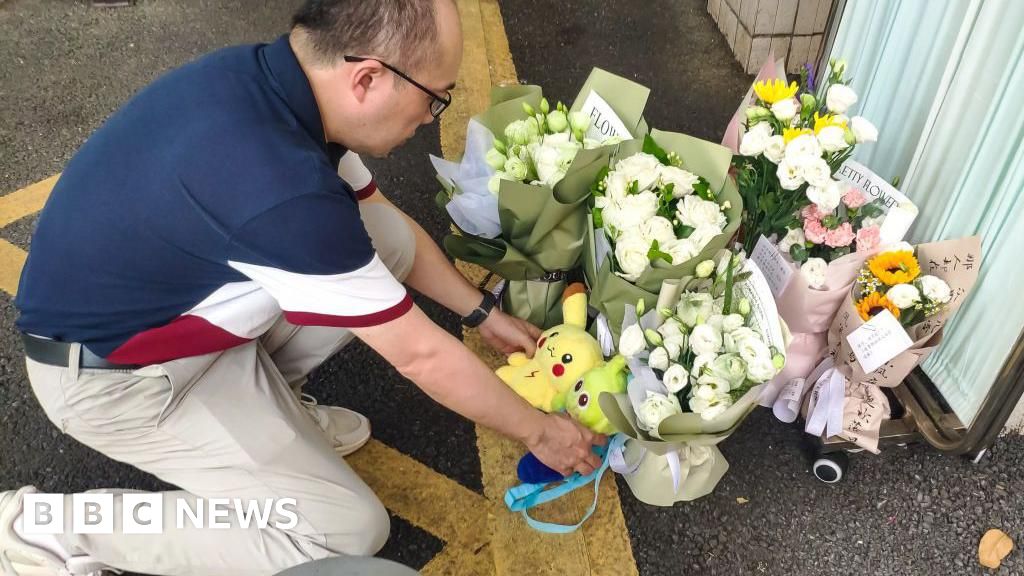In the Philippines, users of loan apps decry deception, threats and debt | Technology News
Manila, the Philippines – From the early morning hours to late at night, Lance receives hundreds of threatening texts and dozens of missed calls each day.
When he answers the phone, the person on the other end of the line often immediately hangs up.
Other times, a threatening voice tells him that his days are numbered if he does not pay the debts he has racked up using online lending platforms.
“They’re toying with me,” Lance, who asked to use a pseudonym, told Al Jazeera.
His family’s breadwinner, Lance, 31, lost his job in sales twice during COVID-19 lockdowns in Manila.
Unable to provide a good enough credit rating for a bank loan, he turned to loan apps.
“It starts with one. Then somewhere along the line, you’re faced with even a small emergency. You don’t pay them back on time, which leads you to another app,” he said.
Since 2021, Lance has accumulated close to one million pesos in debt on more than 20 different lending platforms.
Now with a better credit rating, he has resorted to taking out bank loans to cover the fast-rising penalty fees.
On social media, hundreds of thousands of anonymous accounts populate support groups for users of loan apps who, like Lance, feel they have been taken advantage of.
They say that many apps are designed to trick users into taking on bigger and bigger debts, and that relentless verbal abuse and threats follow when they inevitably cannot pay up.
Many of those who have been burned accuse the authorities of not doing enough to keep predatory lenders in check.
Loan apps exploded in popularity during the pandemic, racking up millions of downloads.
In 2023 alone, the number of new or unique users of such platforms soared by 64 percent to 47.5 million, according to digital lending company Digido.
The Philippines’ Securities and Exchange Commission (SEC) has issued licences for 140 digital lending companies, many of which offer services through apps.
So far, the licences of fewer than 40 platforms have been revoked for unfair debt collection practices.
Robert Dan Roces, chief economist for Security Bank Philippines, said the platforms have been a “disruptor” in the world of finance.
With minimal requirements, “they offer the unbanked and underbanked faster and easier access to credit”, Roces told Al Jazeera.
While the convenience offered by the apps can be tempting for people in straitened circumstances, it “often comes at a steep price, with predatory practices”, he added.
Kikay Bautista, the founder of the United OLA (Online Lending Apps) Victims Movement, said that exploitative online lending platforms are a growing problem in the Philippines.
“It’s getting worse, and many are still being tricked,” Bautista, who founded her support group after she was forced to sell her furniture to pay off debts racked up using online lending platforms, told Al Jazeera.
Bobbie, a 22-year-old university student in Manila, said he turned to loan app MocaMoca after being “bombarded” with advertisements promising ultra-quick processing, low interest rates and a 90-day repayment window.
“Easy money. Who wouldn’t be interested?” Bobbie, who requested to use a pseudonym, told Al Jazeera.
Bobbie said he borrowed 2,500 Philippine pesos ($42) but the app only transferred him 1,500 ($25), with the difference eaten up by processing fees.
He said he was then suddenly informed that he had seven days to return 2,300 pesos ($39), and 90 days to pay back the remaining 200 pesos (USD3).
“It only tells you this once they’ve lent you the money! I was able to pay at first. But eventually I took care of family expenses and missed a day of payment,” Bobbie said.
Within hours, agents were threatening violence and to have him jailed, he said.
Bobbie said that Mocamoca imposed a 400-peso ($6.90) penalty for late repayment the following day.
Struggling to keep up with repayments, Bobbie said he resorted to borrowing from other apps, including MoreGold, and eventually amassed a debt of 200,000 pesos ($3,421), which he is still trying to repay.
Although the SEC stripped MocaMoca operator Copperstone Lending of its licence to operate in April last year, the platform continues to operate pending an appeal.
When contacted for comment, Mocamoca said that it follows the “legal process” without elaborating further.
A visit by Al Jazeera to the address listed as Mocamoca’s office found that it belongs to a hotel in Manila. Staff at the hotel denied having any affiliation with any lending platform and said that they often have to explain to disgruntled customers that the hotel has no connection to the app.

A representative for MoreGold, which Bobbie said had also made threatening phone calls, told Al Jazeera that “our company maintains a strict zero-tolerance policy regarding any form of harassment”.
When Al Jazeera visited the address listed as MoreGold’s office, building security said there was no such company at that location.
The platform did not respond to requests for comment about its address and location.
Since 2022, the SEC has set the monthly interest rates and additional fees that most online platforms may charge their clients at 15 percent.
Nonetheless, borrowers such as Bobbie have found that many platforms charge much higher rates in practice.
The SEC told Al Jazeera that it is actively investigating fraudulent practices.
The regulator said it had revoked the licences of three platforms since 2023, with another currently under investigation.
Lending platforms have also come under fire for their lax approach to data collection and privacy.
Many borrowers have complained of being inundated with spam calls and messages after using their services, often from people whose identity and company affiliation are unclear.
In August 2021, the National Privacy Commission (NPC) ordered the immediate takedown of four platforms – which it did not name – that were found to have collected “irrelevant, unnecessary, and excessive” social media data and exposed borrowers to “serious privacy risks”.
The privacy regulator said some of the apps were found to have accessed borrowers’ email accounts to modify their calendars and send emails without their knowledge.
The NPC has since lifted this ban after determining that the platforms complied with its standards.
However, it told Al Jazeera that it is investigating the “unauthorised processing” of personal information after receiving multiple complaints.
In 2021, the watchdog recommended the prosecution of Fynamics Lending Inc, the operator of lending app PondoPeso, over alleged violations of data protection law.
Bautista, the founder of the United OLA (Online Lending Apps) Victims Movement, said the mental anguish is the hardest thing to deal with for many users of the platforms.
She said she knows of at least two members of her group who took their own lives.
“The anguish can take a hold of you. Many of us are dealing with similar thoughts. That’s why it’s important to support each other,” she said.
Ellah, a 44-year-old resident of Los Banos City, said she felt “completely alone” after sinking into debt and made plans to take her own life after suffering a year of threatening calls and messages.
“I would have probably killed myself too, if I didn’t find others like me,” she told Al Jazeera.
In some cases, platforms have acquired the user data of apps that have been shut down.
A sales representative for loan app Digido told Al Jazeera that former users of Robocash, which was banned by regulators in 2019, can carry over their account as the company holds user data from the defunct app.
The company said a spokesperson was not immediately available to answer questions about its lending practices.
Late last year, Bautista gathered hundreds of complaints and submitted them to the SEC and the Philippine National Police (PNP), flagging MocaMoca, Digido and MoreGold as among the most egregious platforms.
But Bautista said she has been disappointed at the response from the authorities.
“Sad to say there’s been very little action,” she said.

The PNP’s Anti-Cybercrime Group (ACG) took notice of the lending platforms in June 2023 when one borrower was sent funeral flowers to his home in a gesture interpreted as a veiled threat.
After pictures of the flowers went viral on social media, police raided the offices of several lending platforms.
Officials later disclosed that many of those in charge were Chinese nationals.
The SEC has said it is aware of how many lending companies are foreign-owned but has not publicly disclosed its records.
Roces said lending platforms should be subject to stricter regulations and transparency coupled with “responsible traditional banking practices, and financial education”.
Jay Guillermo, the PNP-ACG chief, said authorities can only act on official complaints which have become less frequent over the past year.
Guillermo confirmed that the last raid had been carried out in January 2023.
“It’s hard to establish whether threats are from individuals or from a company. It’s not like we can arrest computers or mobile phones. How do you apprehend something with no physical location?” Guillermo told Al Jazeera.
He advised the public to avoid these apps but conceded that “if you have debt obligations, then you must fulfil them”.
For Bautista, though, the authorities could do more to make the complaints process more “user-friendly”.
“It’s like going through the eye of a needle. It all happens online, it’s too much paperwork and follow-ups that never happen,” she said.
“Many victims are elderly or have limited internet access. What about them?”
Check out our Latest News and Follow us at Facebook
Original Source







